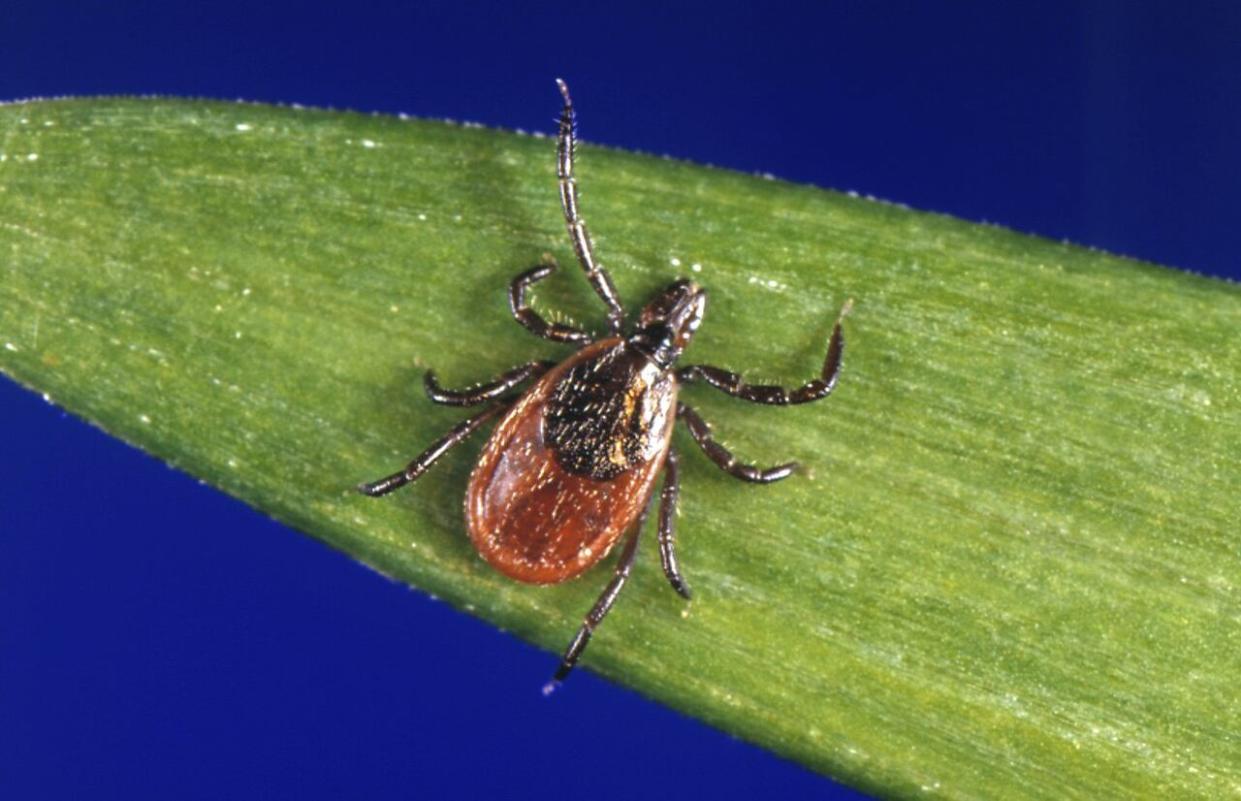Tick carrying Lyme disease bacteria found on dog in N.W.T.

A tick testing positive for the bacteria which can cause Lyme disease has been found in the Northwest Territories for the first time ever.
A blacklegged tick was found on a pet dog in the Fort Simpson area on Oct. 2, according to a news release on Thursday from the territory's chief public health officer.
According to the release, the dog had recently arrived in the territory from a "southern province" where Lyme disease is endemic. Officials don't know yet whether the tick came from the N.W.T. or whether the dog was bitten before it arrived in the territory.
This tick may have hitched a ride, but scientists know that tick habitat is gradually expanding northward.
Anyone in the Northwest Territories who thinks they or a pet might have been bitten by a tick is asked to report it to their local Environment department office, and to bring the tick if possible, so that officials can test it for Lyme disease.
Lyme disease is a serious illness that can cause skin rash, fatigue, muscle and joint pain, and swollen lymph nodes, and can also lead to more serious health issues.
No one in the Northwest Territories has ever been found to have Lyme disease acquired in the territory.

